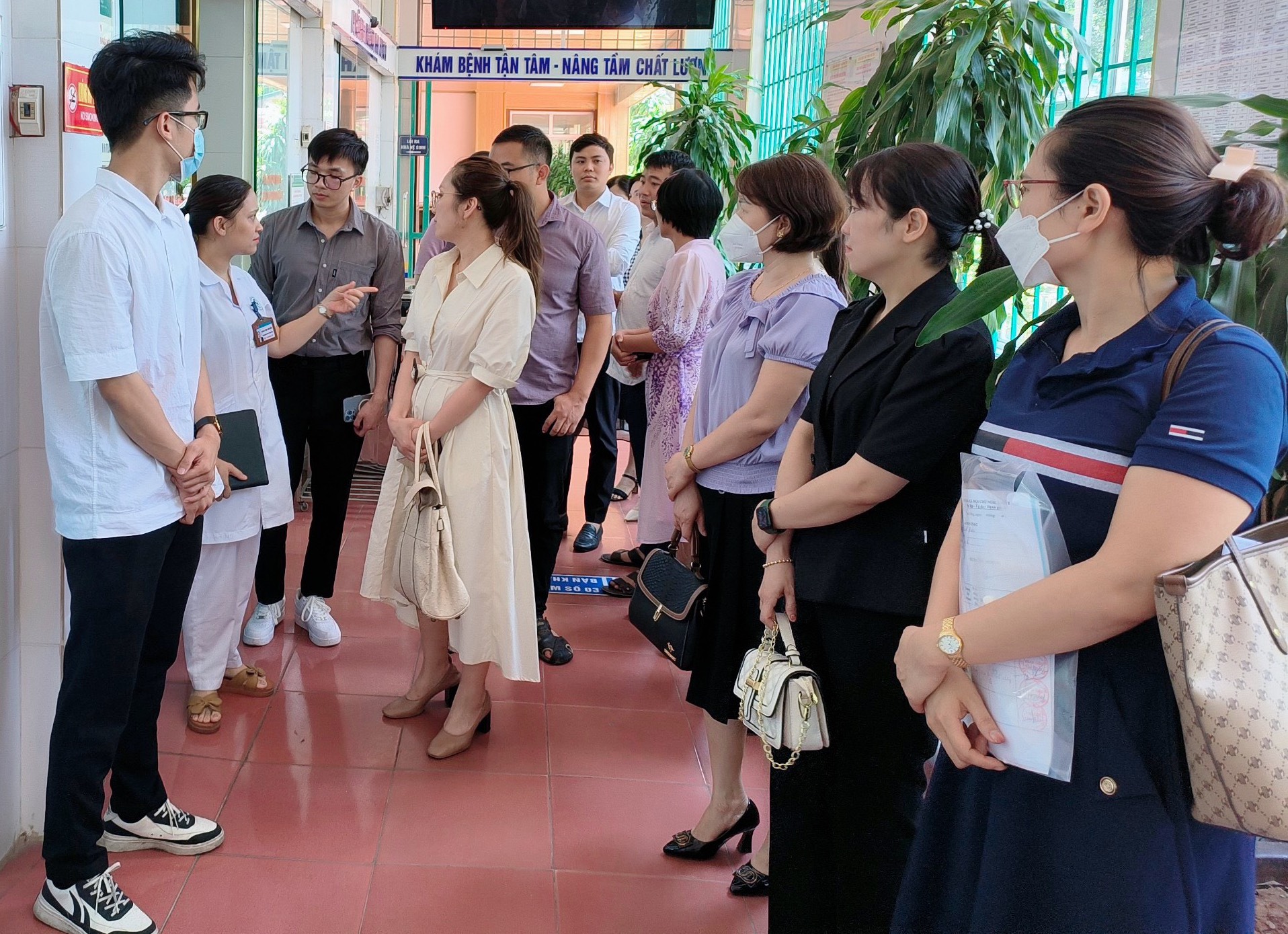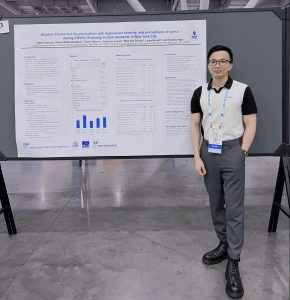The Center for Innovation in Mental Health (CIMH) is thrilled to announce the successful kick-off of a groundbreaking study examining strategies for depression care task-sharing in Vietnam’s 36 community health stations.
Published in BMC Public Health, the study is among pioneering endeavors to evaluate implementation strategies for mental health task-sharing in primary care settings within low- and middle-income countries (LMICs).
Esteemed experts, including CUNY SPH Associate Professor Victoria K. Ngo, doctoral student Thinh Vu and CIMH Project Manager Quan Vu, spearheaded this significant research. Dr. Ngo and Mr. Vu had a business trip to Vietnam in June 2023, during which they actively participated in kicking off the project in the second province, provided supportive supervision and attended advisory meetings.

In this cluster-randomized controlled trial, community health stations will be randomly assigned to one of three implementation conditions: (1) Usual Implementation (UI), which consists of training workshops and toolkits; (2) Enhanced Supervision (ES), which includes UI combined with bi-weekly/monthly supervision; and (3) Community-Engaged Learning Collaborative (CELC), which includes all components of ES, combined with bi-monthly province-wide learning collaborative meetings, during which cross-site learning and continuous quality improvement (QI) strategies are implemented to achieve better implementation outcomes.
The primary outcome will be measured based on the RE-AIM framework (Reach, Effectiveness, Adoption, Implementation quality, and Maintenance) using indicators on implementation, provider, and client factors. The secondary outcome examines factors associated with barriers and facilitators of quality implementation, while the tertiary outcome evaluates the incremental cost-effectiveness ratio of services provided in the ES and CELC conditions, relative to UI condition for depression care.
A total of 1,296 clients receiving depression care at CHSs will be surveyed at baseline and six-month follow-up to assess mental health and psychosocial outcomes (e.g., depression and anxiety severity, health function, quality of life). Additionally, 180 CHS staff and 180 non-CHS staff will complete pre- and post-training evaluation and surveys at baseline, six, 12 and 24 months.
Developed with meticulous care and scientific rigor, the study protocol addresses the urgent need to enhance mental health care access and delivery in LMICs. By focusing on cultural compatibility within an Asian collectivistic context, the research aims to activate community ownership and overcome implementation barriers through the integration of community-engaged learning collaboratives. This approach ensures the development of effective mental healthcare services that seamlessly integrate into primary care settings.
A key objective of the study was to identify a training model that considers resource constraints while employing effective strategies to enhance mental healthcare capacity for primary care and community health providers. By tackling these challenges head-on, the study offers a practical framework for delivering high-quality mental healthcare services, even in resource-limited settings. Taking place in Vietnam, the study also aims to empirically test the potential association between contextual factors, such as organizational climate and leadership, and provider factors, including attitude and stigma. This investigation sheds light on crucial elements that facilitate the effective implementation and sustainable delivery of evidence-based mental health interventions in LMICs.
“We are excited to have conducted this pioneering study on depression care task-sharing in Vietnam’s community health stations,” says Dr. Ngo. “By evaluating implementation strategies in primary care settings within LMICs, we aim to pave the way for enhanced mental healthcare access and improved patient outcomes in resource-constrained contexts.”
The study protocol, published in BMC Public Health, exemplifies the CIMH’s dedication to advancing mental health research and addressing the pressing global mental health crisis. It provides valuable insights into the potential synergies between community engagement, quality improvement strategies, and cultural compatibility in LMICs, setting the stage for transformative mental healthcare initiatives worldwide. The findings of this research could inform effective implementation models and offer recommendations for policymakers and key stakeholders to enhance the dissemination, scale-up, and quality of mental health care in Vietnam and similar settings.
The CIMH looks forward to the outcomes of this significant project, which holds the promise of positively impacting mental health services and, ultimately, the well-being of individuals in need within the community health stations in Vietnam. The study’s success may inspire similar efforts worldwide to address mental health challenges and promote accessible and quality mental healthcare services for all.
About CIMH
The Center for Innovation in Mental Health (CIMH) is an academic training and research center that promotes the reach and adoption of effective mental health interventions through research, evaluation, training, and policy. CIMH engages in local and global efforts to advance mental health services and research to improve access to and quality of mental health care. Based at the City University of New York’s Graduate School of Public Health and Health Policy, the Center builds on a wealth of scholarly and practical expertise within the university, guidance from advisory board members, and partnerships with collaborators across communities.




